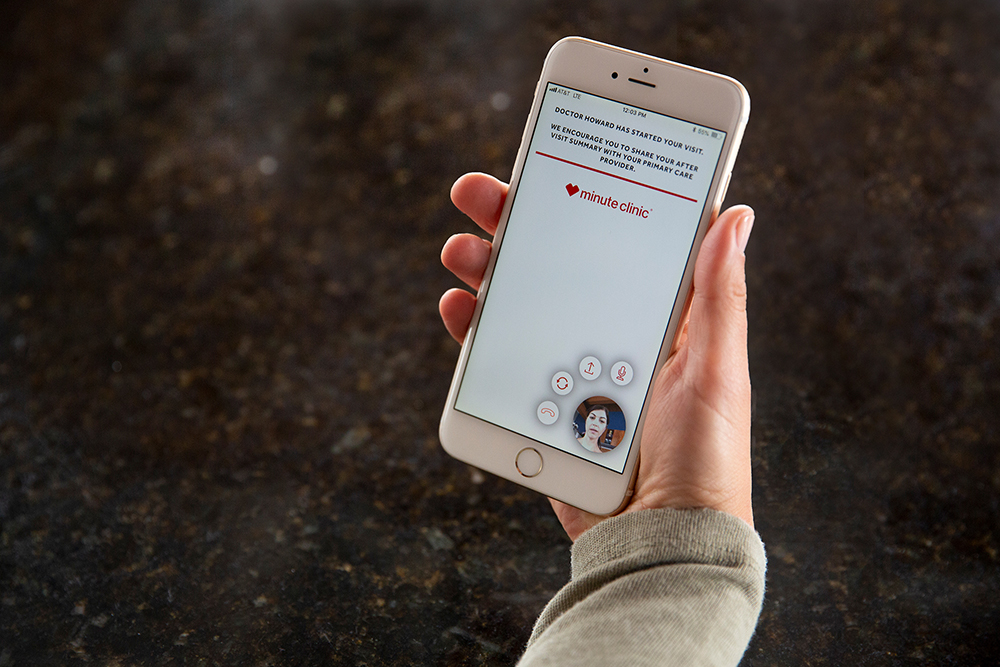The consumerization of health care is pushing providers to offer more options to patients.
Digital behavioral health tools boomed during the COVID-19 pandemic. This trend isn’t going away anytime soon as patients continue to seek care on their terms.
CVS Health Corp. (NYSE: CVS) supported 10 million virtual health visits in 2021 – a 1,000 times increase compared to pre-pandemic levels. But behavioral health care isn’t one size fits all. Many patients are looking to return to in-person care.
“The consumer demand is incredibly powerful, and we shouldn’t underestimate it,” Dr. Creagh Milford, senior vice president of retail health at CVS, said during a Webinar on Thursday morning.
CVS is pitching an “omnichannel” approach to behavioral health, one that includes in-person clinical visits, virtual visit and digital interactions.
Historically, patients seeking behavioral health care had to drive to a provider’s office, wait in a waiting room and then drive home.
“It’s a little unfortunate because the care-as-usual experience for many people that were getting behavioral health treatment was not one that was convenient or pleasing to the customer,” Dr. Taft Parsons III said during the call.
Virtual behavioral health could cut down on stigma and transportation hurdles. It could also allow patients to get back to their lives quicker, said Parsons.
But as the patient-provider paradigm changes, operators will need to figure out ways to meet the consumer expectations. Those expectations could include both in-person and virtual options.
“Previously, we kind of expected people to accommodate health care as it existed. The learning through pandemic has been that people really want and need to get to care in the manner that’s best for them, that fits best into their lives,” Milford said. “We’re doing quite a bit to make sure that people have multiple options available.”
Some of those options include in-person care at CVS Minute Clinics or Health Hubs, and virtual or physical care through CVS’ partners. An omnichannel approach to care also takes buy-in from the clinicians.
“It’s really hard to break habits of providers going into their office and seeing patients that are scheduled and then taking time to do virtual,” Milford said. “I think we all as leaders and as practitioners need to continue to push ourselves to think about what is in the best interest of the right thing to do for our patients.”
Yet providers are also excited about new ways to communicate and reach their patients, Milford said.
An integrated approach
Although the omnichannel approach may be convenient for patients, there is a danger that this model could make care more fragmented.
“With so many virtual mental health options now out there and so readily available, I think there’s a risk that this kind of separatist approach expands,” Geoffrey Boyce, CEO of Array Behavioral Health Care, said during the webinar. “I think our challenge as a mental health provider community will be to bring it together and to coordinate mental health and physical care in a really integrated way.”
New Jersey-based Array Behavioral Health Care is a telepsychiatry provider. It was founded in 1999.
However, if done correctly, there can be an opportunity to utilize omnichannel approaches to provide more holistic care. It could also give physical health and behavioral health providers the ability to better collaborate on patients’ care plans.
“I personally believe that there are significant opportunities for the different groups in these different companies to work together and to package their respective pieces of this puzzle into a more comprehensive behavioral health solution that’s integrated in and of itself,” Parsons said. “It really has much better potential to integrate into the larger picture of physical health and wellness.”
Non-traditional players
CVS Health isn’t the only retailer focused on the consumerization of behavioral health – or health care at large. Apple (Nasdaq: AAPL), Google (Nasdaq: GOOGL) and Walmart (NYSE: WAL) are all making health care plays, and CVS peer Walgreens Boots Alliance (Nasdaq: WBA) has been extremely active as well.
A report earlier this year released by Bain & Company suggested that, by 2030, 30% of primary care services could be delivered by non-traditional health care players, with retail making up a significant chunk of that.
“Retail behemoths could account for 5% to 10% of total primary care lives by 2030,” the report said. “They will likely outperform traditional primary care providers on the patient experience, attracting customers through increased access and convenience, particularly in geographically underserved areas.”



